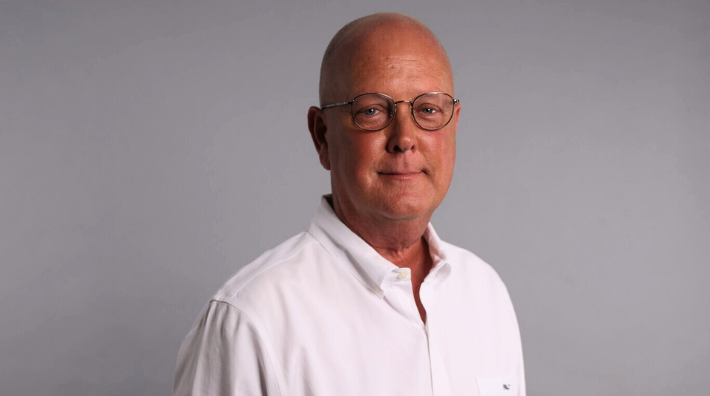Living with CML: Using a Coach’s Mindset to Take On Cancer

In 1997, Kevin Kelly was a 28-year-old newlywed and deeply dedicated to his role as head a high school basketball coach outside of Philadelphia. He admits he was an intense coach, driven to help his players find a way to victory, no matter what. Kevin approached each game with the mindset that it was “life or death,” always strategizing a way to win. Little did he know that his coaching experience would soon prepare him to face his greatest opponent – cancer.
For a few months after his wedding, Kevin didn’t feel well. He assumed it was just life and work stress. After falling ill with intense, flu-like symptoms at a basketball game, Kevin made a trip to the emergency room. Tests revealed a higher-than-expected white blood cell count. Further testing eventually led to his diagnosis of chronic myelogenous leukemia (CML).
Leukemia is a cancer that starts in the normal blood-forming cells of the bone marrow. When one of these cells changes or gets damaged, it becomes abnormal. The leukemia cell can’t mature the way it should, so it doesn’t work like it should. For example, it doesn’t fight infection as well as normal white blood cells do. Leukemia cells also live longer than normal cells, build up, and eventually crowd out normal cells in the bone marrow. Chronic leukemias, like CML, grow slower than acute leukemias. Like Kevin, people with CML may not have symptoms for months or years before they are diagnosed.
Facing Treatment and its Challenges
At the time of Kevin’s diagnosis, a bone marrow or stem cell transplant was a common treatment for CML. The cancer care team told him it was his best chance for survival. However, the high doses of chemo given during a transplant could affect Kevin’s fertility, or ability to father a child. Since he and his wife were newlyweds and wanted to have children, they opted for sperm banking before treatment for CML started.
Thankfully, his brother was a match. Kevin soon underwent a transplant, but his recovery was far from easy. Kevin and his wife’s first year of marriage became consumed by his treatment and care. The transplant was expected to cause Kevin’s immune system to be suppressed or weakened. About 30 days of in-hospital recovery was planned, but Kevin had complications that extended his stay to 54 days. Many of those days were spent in isolation.
“That was the scariest part for me,” he said. “That it wasn’t just me this was affecting, now it was my wife, too.”
Kevin’s mind relied on familiar pathways built by years of playing and coaching basketball. He used his analytical skills to work closely with his cancer care team. He was able to understand his lab results and numbers, share in decisions about what action would be required, and plan for recovery.
“I attacked cancer like a coach,” he said. “Whatever they throw at me, I’m going to figure out how to beat it, how to dodge it, and I’m going to work hard.”
Life was going well for several years after Kevin recovered from the transplant. His leukemia went into remission, and Kevin and his wife welcomed three children in the years that followed. But in 2006, the leukemia returned, beginning a pattern that would repeat two more times in the years that followed.
Each setback only made Kevin more determined to use his strengths and skills as a coach to improve his own health. And new, promising treatments had been developed since Kevin was first treated for CML. Kevin was put on imatinib (Gleevec), a drug that targets a specific genetic mutation found in Kevin’s leukemia cells. Kevin credits research that was partly funded by the American Cancer Society for the discovery of this treatment that became a key part of his playbook.
“We can work together as a team to create a future free from cancer when we raise awareness and fund cancer research.”
Giving Back and Inspiring Others
Kevin knows firsthand how overwhelming a cancer diagnosis can be. Through more than two decades and multiple treatments and setbacks, Kevin has been very engaged in decisions about his care. “I’m very strict,” he said. “I make sure I don’t miss appointments or doses. I’m working the playbook.” He urges everyone facing cancer to learn and understand as much as they can when making decisions and managing treatment.
As a father, Kevin is thankful for the guidance and support he and his wife had for their family planning. He encourages other young people facing cancer to take the lead and ask questions about preserving fertility. Kevin is proud of his family and is grateful for their years of support. He says that for his children, having a dad undergoing cancer treatments and regular checkups has always been a way of life.
“They've seen me when I've been sick and they've seen me when I've been great,” he said. “They get that there are ups and downs, and they understand that. But I never really wanted them to dwell on it.”
Together, Kevin and his family prioritize giving back to others facing challenging situations. Kevin has been an active supporter of the American Cancer Society’s Coaches vs. Cancer program for years, organizing fundraising events. He has also hosted toy drives for children dealing with cancer.
“It’s important for me to give back, and I want to do that by educating my students about cancer and the importance of research,” he said. “We can work together as a team to create a future free from cancer when we raise awareness and fund cancer research.”
- Reviewed by

Reviewed by the American Cancer Society communications team.


